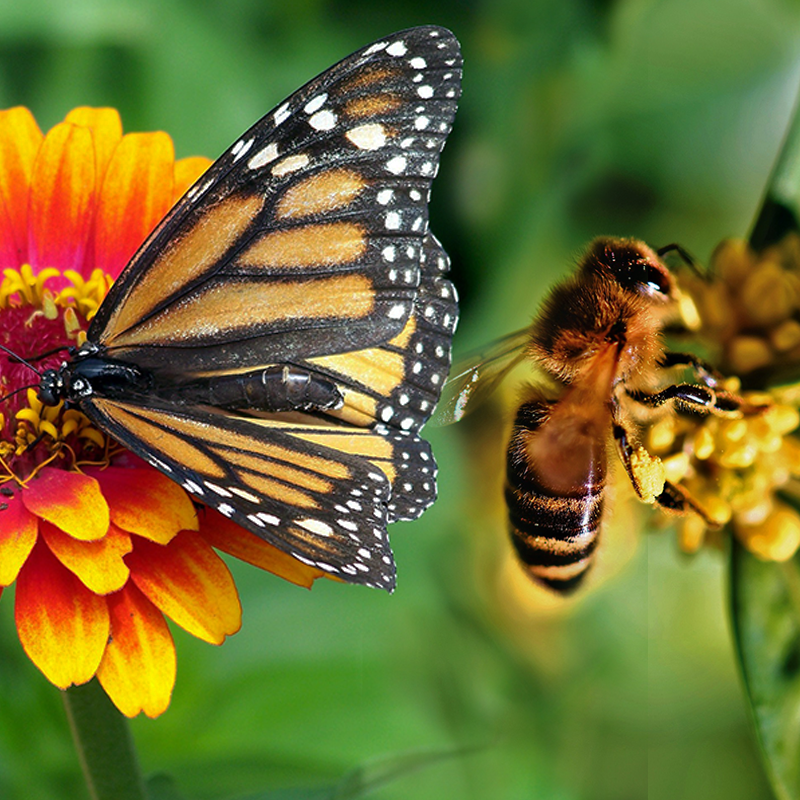In Northern Virginia, pollinators like bees, butterflies, and hummingbirds play an essential role in maintaining a healthy ecosystem. Property owners can significantly contribute to supporting these vital creatures by developing pollinator-friendly yards. This guide will delve into how native plants and sustainable landscaping practices can transform your outdoor space into a thriving natural habitat.
The Vital Role of Pollinators in Nature
Pollinators are more than just beautiful additions to the garden; they are crucial for the pollination of many native plants and crops. By creating environments that attract these pollinators, we ensure the survival of diverse species and maintain ecological balance. Attracting these helpful creatures involves planting specific native species that provide essential nutrients and habitats.
Native Plants: The Heart of a Pollinator Garden
The core of any pollinator garden lies in the careful selection of native plants. These plants are perfectly adapted to Northern Virginia’s specific climate and soil conditions. They require less maintenance than non-native species and are more likely to thrive. When selecting plants, consider options like the fragrant Virginia Bluebell, vibrant Butterfly Weed, and towering Joe-Pye Weed, which are particularly attractive to various pollinators.
Landscape Design for Pollinators
Crafting a pollinator-friendly landscape involves more than just plant selection. It’s about creating an environment that mimics the natural habitats of these creatures. Utilizing landscape pavers, create meandering paths and distinct areas within your garden, providing a variety of heights, textures, and colors. Include a mix of perennials and annuals to ensure a continuous supply of blooms and add a water source, like a bird bath or small pond, as pollinators also need water.
Eco-Friendly Maintenance Practices
Maintaining a pollinator garden requires a gentle touch and eco-friendly practices. Avoid the use of pesticides, which can harm the very creatures you aim to support. Instead, focus on organic and natural pest control methods. Engage in regular gardening activities like deadheading flowers to encourage more blooms and pruning plants to maintain their health and appearance.
The Broader Impact of a Pollinator-Friendly Yard
Creating a space that is friendly to pollinators has benefits that extend beyond your own backyard. These gardens play a crucial role in supporting local ecosystems. They improve soil quality, increase the yield of nearby fruit and vegetable gardens, and provide habitats for other beneficial wildlife. A pollinator-friendly yard is also a place of natural beauty, offering a peaceful retreat for homeowners to relax and connect with nature.
In Summary
Building a pollinator-friendly yard in Northern Virginia is a rewarding and impactful endeavor. It benefits the environment, supports local wildlife, and provides a beautiful and serene space for homeowners. By focusing on native plants and sustainable landscaping practices, you can create a vibrant and ecologically sound landscape that supports the vital work of pollinators, contributing to the health and beauty of our region.

